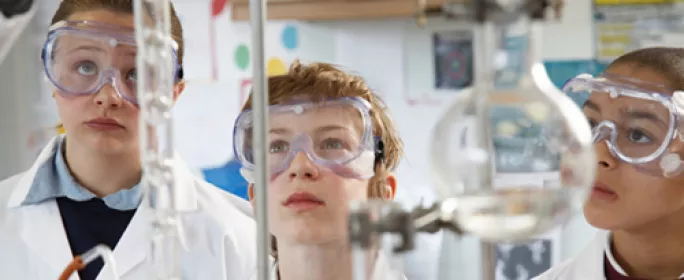A tick-box approach to teaching science in schools risks creating a climate where misconduct can thrive at university level, according to senior academics.
Encouraging students to fake results when an experiment goes wrong creates bad habits that can persist into a subsequent scientific career, while schools leave no space to teach about the ethics of research, they argue.
Writing in this week’s Times Higher Education, two leading academics report on a recent increase in cases of scientific misconduct, where researchers fabricate or falsify data. They call for more time to be devoted to experiments and an end to “fact regurgitation”.
Tim Birkhead, professor of behavioural ecology at the University of Sheffield, and Bob Montgomerie, professor of evolutionary biology at Queen’s University in Ontario, Canada, attribute the rise to greater competition and cynicism among academics.
They say that their own research students identified the main cause of misconduct as “the way science is taught at school”.
Students reported being encouraged by teachers to make up results when an experiment has not worked, while teachers do not have time to teach proper scientific processes, they write.
They argue that teachers need to explain why an experiment has not turned out as expected, or risk setting young scientists on a path that will lead to them faking results later in their careers.
“It is ludicrous that pupils should ever be encouraged to fake results when their experiments do not turn out as expected, or be punished with lower marks when they do not get the ‘right’ answer,” Professors Birkhead and Montgomerie write.
“We expect that for some ambitious young scientists, the mistraining they received at school sets the agenda for the rest of their career.”
Universities can try to tackle misconduct through clearer guidelines and a greater emphasis on teaching ethics, but by then it may be too late, the academics contend. Instead, action needs to be taken in schools.
“At school we need to start teaching science properly,” they write. “We need to stop bucket-filling and fact regurgitation. The current box-ticking and assessment culture leaves no place for the creative and ethical processes of doing science.
“Teachers need sufficient time to teach effectively, to do experiments carefully, more than once if necessary, and to assess why the ‘right’ results aren’t always obtained.”
Related stories:
England’s schools suffering from ‘science deserts’, minister warns - May 2014
Plans to stop practical science work counting towards A-levels branded ‘daft’ - May 2014
Science GCSEs failing to give students practical skills, Ofsted warns - Nov 2013




